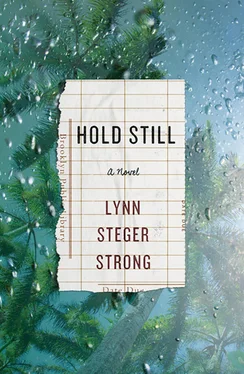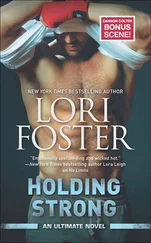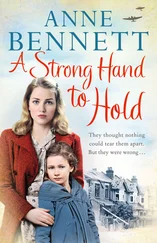He was in real estate, self-made and later self-destroyed. He’d bought in with a development company with offerings in the middle of the state, deeds handed over, for properties that could be used only for camping and hiking, some of it completely swampland, to buyers far away who thought they were getting land to build. And though the bulk of sales had happened in the sixties, it was nearly ten years later that he’d finally been bankrupt as a result.
She was fourteen and home from St. George’s. Upstairs, trying to sleep in her room. It was a room that never felt like hers because her father had moved the year she’d left for boarding school. It felt like someone’s approximation of a girl’s room, which in fact it was: a designer that he’d hired. It was how it felt when her dad looked at her, like she was an approximation of a daughter, something he had conjured, less somehow than he’d hoped.
This night, like all nights, he’d been drinking. He padded barefoot through the house. She could still summon the smell of him. Aftershave from a dark green bottle, old, slightly watered gin. He’d taken a lime when she was younger but he didn’t anymore. She’d noticed this because she watched him, she studied him for lack of knowing what to say. He read three papers every morning cover to cover. He ate his breakfast quickly, standing up, drank his coffee black. Instead of interacting with one another, on her trips home they each sat quietly across the table at dinner, next to one another in the car, and noted how the other smelled and moved. They took each other in with care and a safe distance and, both of them maybe, hoped that added up to love.
He seldom touched her. She made him nervous, especially as she’d grown slightly taller, begun to grow breasts and shave her legs. These were all things she’d learned to deal with on her own, reading magazines furtively at grocery stores and at the doctor’s, listening to girls at school, to women on TV. When she’d first used a tampon, she hadn’t realized she was supposed to remove the applicator and instead had left it in the entire time, tearing herself up, having to wear pads for the next month.
They said good night that night, all nights, in the kitchen, Maya leaning toward him, kissing his cheek. “Daddy,” she still called him. “My girl,” he still said. He’d never come into her bedroom, though sometimes she would check on him in his room, slipping off his shoes or pulling down the duvet and the sheets.
But this night, late, he came to her. And what he did had been so simple, could have been, had he been an altogether different father, a thing she remembered with a sort of loving, quiet angst. But instead it left her squirming, nauseous, nervous, each time after. And each time after, he did it again and then again.
He was slurring, his shoulders folded inward. He wore his undershirt and shorts. She hardly ever saw his legs and was shocked by their thinness, how pale and thick with dark coarse hair. She was supposed to be asleep but wasn’t. The room was still so new and foreign. She was up reading, a small light she’d gotten at school to read by while her roommate slept. She was under the covers with Charlotte Brontë: Bertha was in the attic and Jane had just run away.
Her father said her name once in a whisper, then pulled the covers up and climbed in next to her. She felt the coarseness of the hairs along his legs against her, the warmth of his breath, and smelled the aftershave and gin. It was then she realized he was crying, shaking heavily, a bit of snot caught thickly in her hair. He pulled her close to him. And though she stiffened, though her stomach turned and her skin itched and ached to get away, she lay there and let him hold her, knowing finally, this was something she could give.
He’d lost all of his money. Somehow, brilliantly, with the same sweeping unexpectedness of its arrival, all of it was gone. He was sad and desperate and he clung to Maya. He whispered she was all that he had left. And she stayed completely still and tried to empty her brain of everything. She tried not to breathe or move or let him feel her flinch as he held her, because she knew he was her father and he loved her, because she knew she should be glad to give to him.
From then on this happened each time she came home. And each time, Maya stayed very still and waited for her dad to fall asleep. He didn’t always cry, and sometimes she was able to slip out from beside him. But those few times he woke up late in the night or early in the morning, still drunk and blubbering, saying that she had slipped from him because she knew he wasn’t worthy of her. He cried and said if even his daughter didn’t love him, what was there left for him. And then Maya would have to beg him to please stop, to promise him she loved him, to calm him, hold him, until he fell asleep again.
She was terrified each time she went back to school that he wouldn’t be there the next time she came home, that she was betraying him in leaving, in not staying there to keep him safe. Each time she came back, she was terrified that he would be there, that this time he wouldn’t let her leave again.
It would have been easier, she thought, if he’d done something more explicitly detestable: hit her, fucked her. Then maybe she could have rid herself of him, then maybe she could have finally been free. Instead she carried with her all he needed, all she knew she couldn’t give.
Back at school, she had trouble sleeping, reading like she always had but then still needing more. She piled books into her bed and hardly slept. She woke up with pages sticking to her, flitting from one world to the other, feeling jarred and confused when she had to leave her room and interact with a world not made up of words. She discovered Woolf during this period, crying under the covers upon her first encounter with Mrs. Ramsay’s death. The paragraphs then, the way they caught inside her brain and stuck there. They ran back and forth over all her other thoughts and dulled, then sharpened them. She loved the vastness all wrapped up inside the minutiae: a house come to life, wind and dust sweeping through corners, suddenly enough to sustain a whole page. She knew she didn’t completely understand it, but that was part of what was so attractive, the knowledge that she could return later for more.
What she can’t do, though, is situate her past within her present. She can’t apologize for the ways in which it’s made her less capable than she might have been. Stephen knows this, but he’s asked her for it anyway.
She turns from him, pulls her boots on, grabs her coat; she leaves.
“Food?” says Ellie, peering through her brother’s door, where he’s still in bed and half asleep. Their mom’s in her study with the door locked. Ben calls to her that they’re going, and he and Ellie walk the ten blocks to his favorite diner on the other side of Flatbush. Their neighborhood is different than it was when they were little. Ellie remembers being scared often, when her mom pulled her close walking up the stairs from the subway. A few times she remembers walking right past their apartment when her mom thought someone might be following too close. Now there are fancy coffee shops, a Barnes & Noble, a Starbucks, strollers and tiny scooters everywhere, dogs and kids. This all makes Ellie a different kind of nervous, like maybe she’s what’s dangerous about the place where they live.
Her brother: he still looks like a little boy to Ellie. He was shorter than most of his classmates in middle school, and rounder. Ellie’s mom would rub her hands over his cheeks and smile at him and Ellie’d want to grab her mom’s hand and remind her she was hers. But then suddenly, sometime at the end of middle school, he’d shot straight up, all crooked aimless height and limbs, twisted and folded and hanging over couches, curled up in the backseat of the car.
Читать дальше












